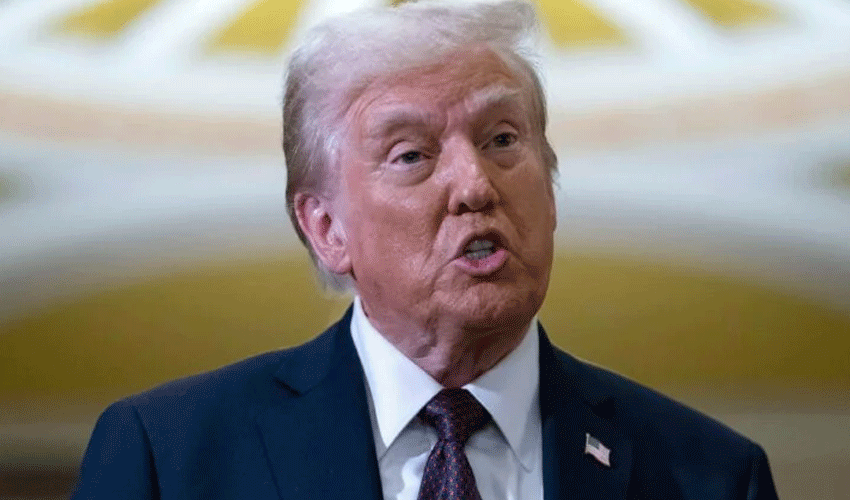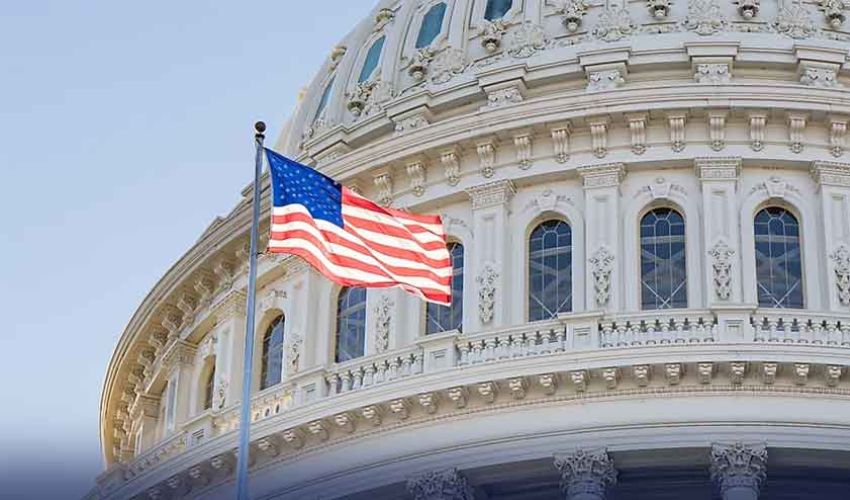Amid a sweeping downturn in global equity markets following his administration’s imposition of reciprocal tariffs, former US President Donald Trump has defended the move as necessary "medicine" to fix longstanding economic imbalances.
Speaking to reporters aboard Air Force One late Sunday, Trump downplayed fears that his actions were deliberately aimed at engineering a sell-off, even as markets reeled under the weight of his tariff policy. “I don’t want anything to go down, but sometimes you have to take medicine to fix something,” Trump said.
The remarks followed a tumultuous week on Wall Street, with major indices suffering their worst losses since the Covid-19 pandemic. The Dow Jones Industrial Average plunged 2,231 points — a drop of 5.5 per cent — while the Nasdaq Composite slumped by 5.8 per cent, pushing it more than 20 per cent below its December peak. The S&P 500 also ended its worst week since March 2020, with the total market wipeout estimated at $6.6 trillion.
Stock futures indicated further losses ahead as investors braced for retaliatory moves from global trading partners. S&P 500 E-minis were down 4 per cent, while Dow and Nasdaq futures fell 3.8 per cent and 4.6 per cent respectively in late Sunday trading.
The turbulence began after Trump announced sweeping new tariffs last week, including a 34 per cent levy on Chinese imports, in addition to existing 20 per cent duties. China responded in kind, slapping similar tariffs on all US products.
Posting on his social media platform Truth Social, Trump justified the move by citing longstanding trade deficits. “The only way this problem can be cured is with tariffs, which are now bringing tens of billions of dollars to the US,” he wrote. “Some day people will realise that tariffs, for the United States of America, are a very beautiful thing!”
He further accused his predecessor Joe Biden of failing to manage the country’s trade relationships. “We have been treated so badly by other countries because we had stupid leadership that allowed this to happen,” he claimed, reiterating that the trade surplus with countries like China and those in the European Union had grown under Biden’s administration.
When asked whether a trade deal with China was still on the table, Trump remained adamant. “Unless we solve that problem [the trade deficit], I’m not going to make a deal,” he said.
The White House has also justified the latest tariffs as a response to China’s alleged failure to curb illicit fentanyl exports to the United States — an issue that has remained a flashpoint in bilateral relations.
As tensions mounted, US customs officials began collecting a unilateral 10 per cent tariff on all imports from multiple countries from Saturday. Higher reciprocal tariff rates — ranging from 11 per cent to 50 per cent depending on the country — are set to take effect at 12:01am EDT on Wednesday.
Asian markets were also bracing for a difficult start to the week, with many investors now betting that the US Federal Reserve may be forced to consider rate cuts as early as May in response to growing recession risks.
Despite the volatility, Trump showed no signs of backing down. “What’s going to happen to the markets, I can’t tell you,” he said, “but our country is much stronger.”
He added that he had held conversations with leaders in Europe and Asia regarding the tariffs, claiming that “they were dying to make a deal”.
The sweeping tariffs mark a sharp return to the protectionist policies that defined Trump’s previous administration, raising fears of a renewed global trade war at a time when markets are already grappling with inflation, banking instability, and geopolitical tensions.
While Trump’s backers praise the move as long overdue economic correction, critics warn that prolonged trade friction could deepen the risk of a global slowdown — and leave American consumers bearing the brunt.


























